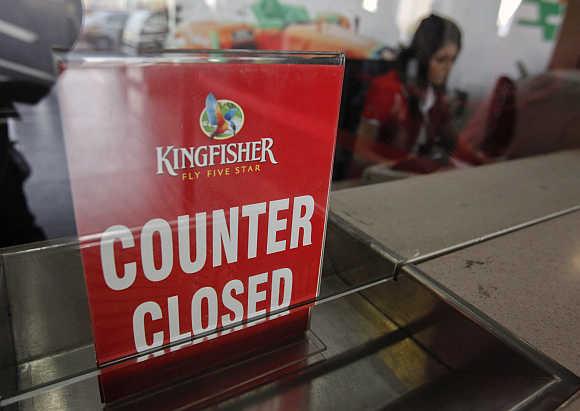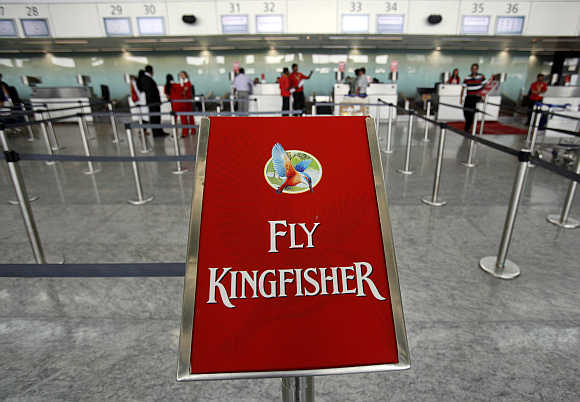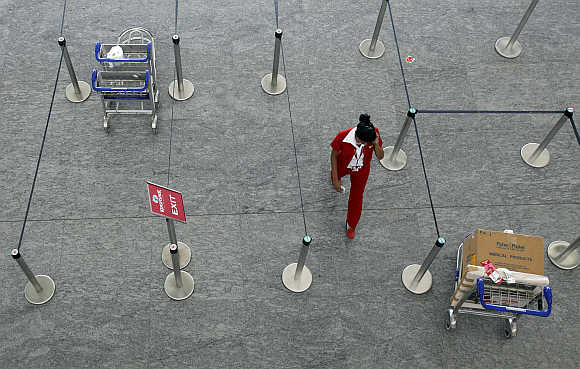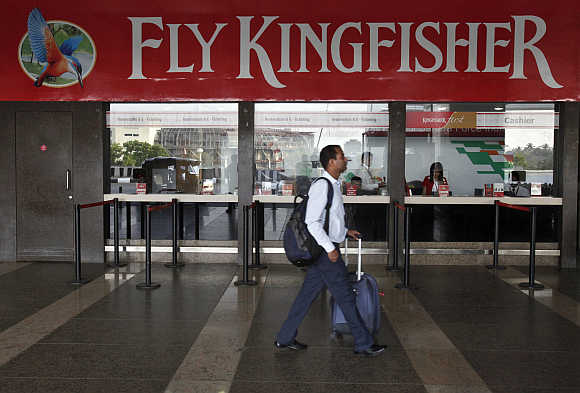
The Directorate General of Civil Aviation on Saturday suspended the licence of Kingfisher Airlines, denying it permission to fly.
The DGCA's stated reason was that the company had failed to provide a viable recovery plan; failing such a plan, it was not clear that safety standards would be met.
Kingfisher's engineers have been on strike for over a fortnight, demanding the payment of salaries which have been in arrears for several months.
Kingfisher, however, has hastened to point out that a suspension was not a cancellation, and that negotiations with employees were ongoing; following the successful conclusion of those negotiations, a revival plan would be announced.
...

Yet it is difficult to see what the airline's path to recovery could be. It has a total debt of Rs 13,446 crore (Rs 134.46 billion), with accumulated losses of Rs 10,260 crore (Rs 102.6 billion); its employees are disgruntled, its customers wary and its brand in tatters.
The question that should now be asked is: why did it take so long? It does not require perfect hindsight to see that Kingfisher locked into a downward spiral months ago.
At the beginning of 2012, banks had declared that loans to the company would be treated as non-performing assets. The tax department froze Kingfisher's bank accounts shortly thereafter; the oil companies had already been wrangling with the airline over unpaid fuel bills for over a year by then.
...

The civil aviation sector in India is going through a troubled patch, but it should have been clear that Kingfisher's problems were greater than those associated with a business-cycle downturn. Its business model was unabashedly high cost, and yet low-cost carriers seemed to be providing better service and more on-time flights.
Reckless expansion had given it a debt overhang that even well-run companies with low overheads would have struggled to service. By delaying the wind-up of the airline, the government, the regulators, the company's creditors and its owners have done a great disservice to its employees and to its customers - as well as to those who will have to foot the bill for the extra period that it limped along making mammoth losses.
...

It is an open question whether such regulatory forbearance and open-handedness on the part of creditors - particularly in the public sector - would have been available to a smaller company, or one without an owner who is so well connected.
Banks postponed the acceptance of the reality that Kingfisher was heading towards closure for longer than they should have, trying and failing to see if it was a fit case for corporate restructuring instead.
In November 2010, its bank loans were restructured and a part of its debt was converted into equity at a premium of 70 per cent, under the pretext that the sector was passing through stressed times.
...

However, this was not accompanied by necessary changes in its business model - so, naturally, it was unlikely to succeed. The government has also not proceeded with any investigation as to whether the owners broke the law by defaulting on payments to employees' provident funds.
The authorities should now dispense with the pretence that the airline has a viable path to recovery - some analysts estimate it will require the infusion of Rs 3,000-4,000 crore (Rs 30-40 billion) in the short run alone just to get it flying again, which does not even begin to guarantee it will start making profits in the foreseeable future.
Winding up the airline speedily, keeping customers', employees', and creditors' interests in mind, should be the priority.